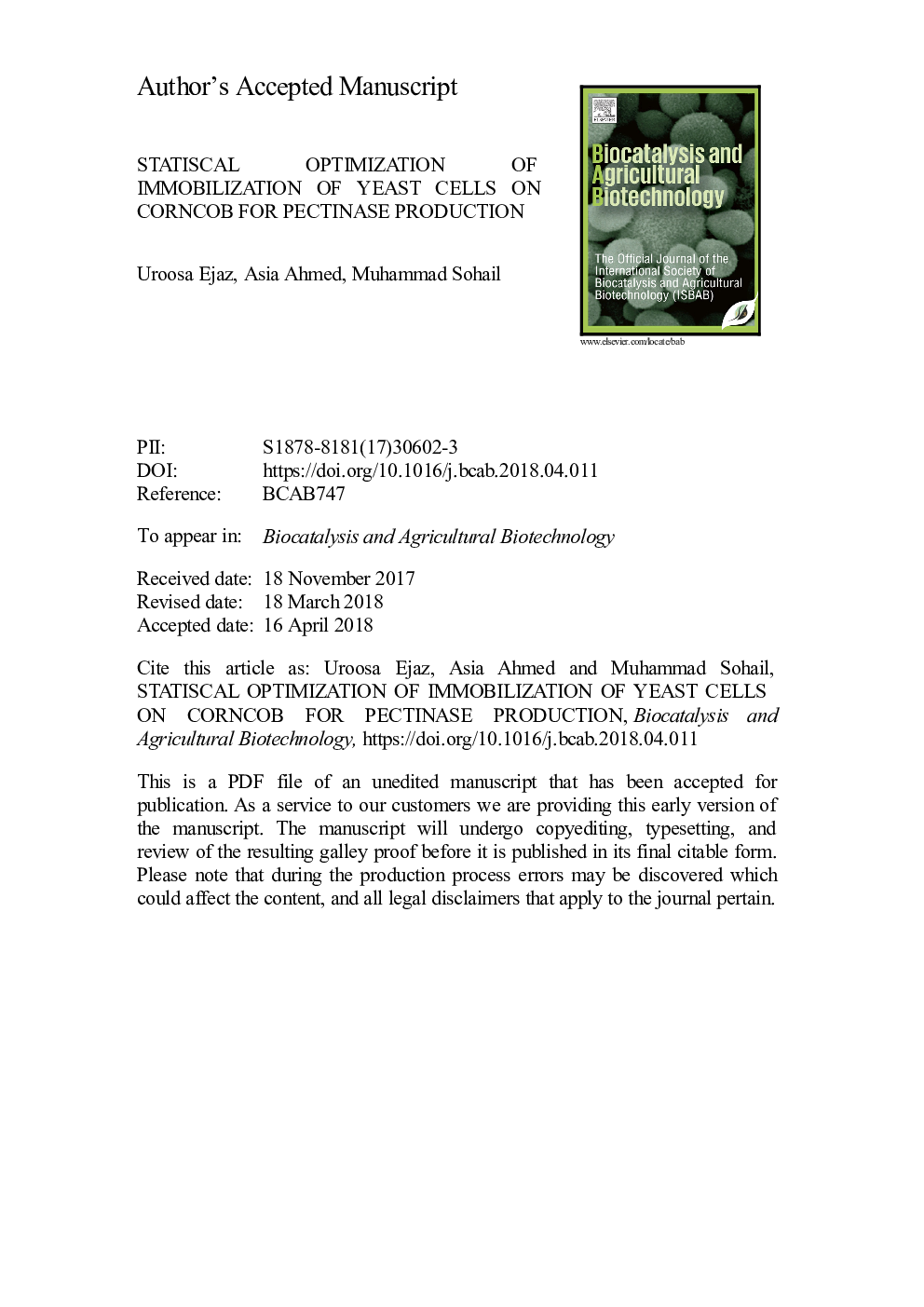| Article ID | Journal | Published Year | Pages | File Type |
|---|---|---|---|---|
| 8406147 | Biocatalysis and Agricultural Biotechnology | 2018 | 24 Pages |
Abstract
The techniques to immobilize microbial cells for the production of industrially important enzymes have been reported to offer advantages of cost effectiveness, higher yields and recyclability. Keeping the importance of yeasts strains and immobilization in view, this study was carried out to optimize the condition for the process of immobilization of an indigenous pectinolytic yeast strain, Geotrichum candidum AA15 on an inexpensive matrix, Corncob (CB). Various parameters influencing the process of immobilization on CB were screened for their significance using a statistical tool namely, Plackett-Burman Design (PBD). The data revealed that the most efficient immobilization occurred on alkali treated CB in Sabouraud's dextrose broth of pH 7.0 by inoculating 5% of yeast inoculum without shaking at 30â¯Â°C. The immobilized cells yielded 0.554 IU/ml of pectinase that was much higher than was obtained from the free cells (0.215 IU/ml). The parameters affecting pectinase production were also studied using PBD and it was found that the optimum conditions for the pectinase production by immobilized cells include 25â¯Â°C temperature, pH 7, 2 pieces of CB with immobilized cells, 48â¯h incubation time period and mineral salt medium containing 1% pectin and 1% yeast extract under static conditions. The titers obtained under optimized conditions were 12 times higher than was obtained by the free cells. Furthermore, the immobilized cells retained 70% of the productivity up to third production cycle. This study, therefore, explores the possible biotechnological application of CB for the immobilization of yeast strain for the subsequent production of an industrially important enzyme.
Related Topics
Life Sciences
Agricultural and Biological Sciences
Agricultural and Biological Sciences (General)
Authors
Uroosa Ejaz, Asia Ahmed, Muhammad Sohail,
